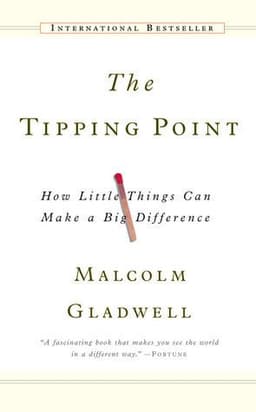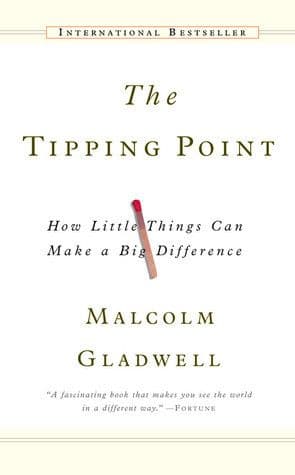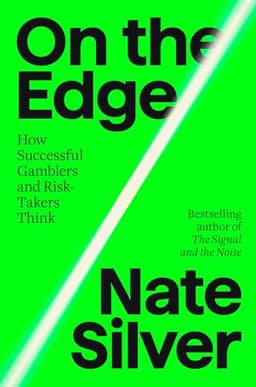
Revenge of the Tipping Point Book Summary
Overstories, Superspreaders, and the Rise of Social Engineering
Book by Malcolm Gladwell
Want to read the full summary?Click here to read for free!
Summary
In "Revenge of the Tipping Point," Malcolm Gladwell argues that social epidemics are not random or mysterious, but follow predictable rules and can be shaped by the power of influential individuals, the contagious narratives that frame our world, and the delicate balance of group dynamics.
Sign in to rate
Average Rating: 4.71
These are the best quotes from Revenge of the Tipping Point by Malcolm Gladwell. If you want to read a full summary of this book for free, click here.
Small-Area Variation Beyond Medicine
"Small-area variation has subsequently become something of an obsession for medical researchers. Books are written about it. Scholars spend their days studying it. But what's fascinating is how the same inexplicable patterns of variation turn up outside the world of medical care."
Section: 1, Chapter: 1
The Perils of Secretive Social Engineering
"Social engineering takes on a very different face, however, when the engineers go about their business in secret. There is far too much of this second, hidden kind of manipulation going on. If we are to protect the integrity of our institutions, we need to be made aware of the games being played below the surface."
Section: 2, Chapter: 5
"It's Not the Media Pushing This Button to Get That Effect"
Scholar Larry Gross argues that television's impact comes not from overt messaging but from the assumptions baked into entertainment:
"It's not the media pushing this button to get that effect. It's the media creating the cultural consciousness about how the world works... and what the rules are."
Gross found that heavy TV viewership narrowed the gap between liberals and conservatives on hot-button social issues. Exposure to the same set of stories week after week, year after year "brings them together."
Gross says, "I always like to quote this line from a Scottish writer, Andrew Fletcher, 'If I can write the songs of a nation, I don't care who writes their laws.'"
Section: 3, Chapter: 7
Our Power to Understand and Shape Epidemics
"Epidemics have rules. They have boundaries. They are subject to overstories - and we are the ones who create overstories. They change in size and shape when they reach a tipping point - and it is possible to know when and where those tipping points are. They are driven by a number of people, and those people can be identified. The tools necessary to control an epidemic are sitting on the table, right in front of us. We can let the unscrupulous take them. Or we can pick them up ourselves, and use them to build a better world."
Section: 3, Chapter: 9
Related Content


The Tipping Point Book Summary
Malcolm Gladwell
The Tipping Point reveals the hidden forces that cause social epidemics - from fashion trends to crime waves - to spread like viruses, and shows how to start and control positive epidemics of our own.
The Tipping Point reveals the hidden forces that cause social epidemics - from fashion trends to crime waves - to spread like viruses, and shows how to start and control positive epidemics of our own.
Psychology
Personal Development
Sociology
Economics


On The Edge Book Summary
Nate Silver
"On the Edge" takes readers on a captivating journey through the high-stakes world of poker, sports betting, and risk-taking, revealing the counterintuitive strategies and mental habits that allow gamblers and daredevils to thrive in the face of daunting odds.
"On the Edge" takes readers on a captivating journey through the high-stakes world of poker, sports betting, and risk-taking, revealing the counterintuitive strategies and mental habits that allow gamblers and daredevils to thrive in the face of daunting odds.
Economics
Decision Making
Prediction
Game Theory


Nexus Book Summary
Yuval Noah Harari
In "Nexus: A Brief History of Information Networks from the Stone Age to AI," Yuval Noah Harari explores how the flow and organization of information has shaped human history, arguing that the rise of artificial intelligence could lead to either unprecedented human cooperation or the dominance of digital dictatorships.
In "Nexus: A Brief History of Information Networks from the Stone Age to AI," Yuval Noah Harari explores how the flow and organization of information has shaped human history, arguing that the rise of artificial intelligence could lead to either unprecedented human cooperation or the dominance of digital dictatorships.
History
Technology
Artificial Intelligence

